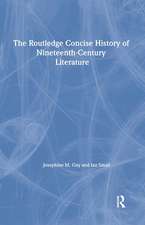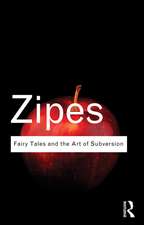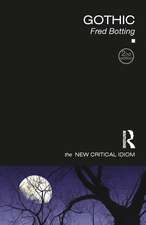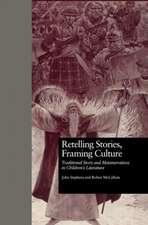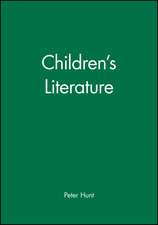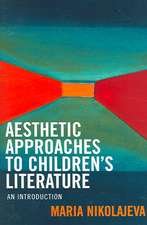Routledge Library Editions: Soviet Foreign Policy: Routledge Library Editions: Soviet Foreign Policy
Autor Variousen Limba Engleză Hardback – 28 dec 2022
Din seria Routledge Library Editions: Soviet Foreign Policy
-
 Preț: 264.90 lei
Preț: 264.90 lei -
 Preț: 230.80 lei
Preț: 230.80 lei -
 Preț: 230.80 lei
Preț: 230.80 lei -
 Preț: 230.80 lei
Preț: 230.80 lei - 13%
 Preț: 215.42 lei
Preț: 215.42 lei - 33%
 Preț: 629.82 lei
Preț: 629.82 lei - 33%
 Preț: 532.80 lei
Preț: 532.80 lei - 33%
 Preț: 531.38 lei
Preț: 531.38 lei - 33%
 Preț: 630.55 lei
Preț: 630.55 lei - 33%
 Preț: 500.68 lei
Preț: 500.68 lei - 33%
 Preț: 527.42 lei
Preț: 527.42 lei - 33%
 Preț: 771.17 lei
Preț: 771.17 lei - 33%
 Preț: 527.77 lei
Preț: 527.77 lei - 33%
 Preț: 638.11 lei
Preț: 638.11 lei - 34%
 Preț: 494.55 lei
Preț: 494.55 lei - 34%
 Preț: 495.64 lei
Preț: 495.64 lei - 33%
 Preț: 631.63 lei
Preț: 631.63 lei - 33%
 Preț: 691.99 lei
Preț: 691.99 lei - 33%
 Preț: 529.58 lei
Preț: 529.58 lei - 33%
 Preț: 686.96 lei
Preț: 686.96 lei - 33%
 Preț: 527.06 lei
Preț: 527.06 lei
Preț: 13363.27 lei
Preț vechi: 20090.94 lei
-33% Nou
Puncte Express: 20045
Preț estimativ în valută:
2557.71€ • 2635.85$ • 2159.34£
2557.71€ • 2635.85$ • 2159.34£
Carte tipărită la comandă
Livrare economică 03-17 martie
Preluare comenzi: 021 569.72.76
Specificații
ISBN-13: 9781032335537
ISBN-10: 103233553X
Pagini: 8190
Dimensiuni: 156 x 234 mm
Greutate: 15.36 kg
Ediția:1
Editura: Taylor & Francis
Colecția Routledge
Seria Routledge Library Editions: Soviet Foreign Policy
Locul publicării:Oxford, United Kingdom
ISBN-10: 103233553X
Pagini: 8190
Dimensiuni: 156 x 234 mm
Greutate: 15.36 kg
Ediția:1
Editura: Taylor & Francis
Colecția Routledge
Seria Routledge Library Editions: Soviet Foreign Policy
Locul publicării:Oxford, United Kingdom
Cuprins
1. The Adversaries: America, Russia and the Open World, 1941–62 Michael Balfour 2. The Afghan Syndrome: How to Live with Soviet Power Bhabani Sen Gupta 3. American-Soviet Relations Peter G. Boyle 4. China and the Soviet Union Aitchen K. Wu 5. Commonwealth and Independence in Post-Soviet Eurasia Edited by Bruno Coppieters, Alexei Zverev and Dmitri Trenin 6. Gorbachev's Third World Dilemmas Edited by Kurt M. Campbell and S. Neil MacFarlane 7. In the Direction of the Persian Gulf A. Yodfat and M. Abir 8. Khrushchev and the Communist World Edited by R.F. Miller and F. Feìheìr 9. Leadership Selection and Patron-Client Relations in the USSR and Yugoslavia Edited by T.H. Rigby and Bohdan Harasymiw 10. The Limits to Power: Soviet Policy in the Middle East Edited by Yaacov Ro'i 11. The New Communist Third World Edited by Peter Wiles 12. The Russians in the Arctic Terence Armstrong 13. Soviet Foreign Policy after Stalin David J. Dallin 14. Soviet Foreign Policy Today Robert F. Miller 15. Soviet Risk-Taking and Crisis Behavior Hannes Adomeit 16. The Soviet Union and Cuba Peter Shearman 17. The Soviet Union and Egypt, 1945–1955 Rami Ginat 18. The Soviet Union and India Peter J.S. Duncan 19. The Soviet Union and National Liberation Movements in the Third World Galia Golan 20. The Soviet Union in the Third World Edited by Robert H. Donaldson 21. The Soviet Union in World Politics Edited by Kurt London 22. The Soviet World Luca Pietromarchi 23. Soviet-East European Relations as a Problem for the West Edited by Richard D. Vine 24. Turkism and the Soviets Charles Warren Hostler 25. The USSR and Latin America Edited by Eusebio Mujal-León 26. World Order in History: Russia and the West Paul Dukes
Descriere
Routledge Library Editions: Soviet Foreign Policy examines, among other areas, the shifting relationships between the USSR and the democratic West; the Soviet domination of Eastern Europe; Soviet foreign policy goals in regions such as South America, the Middle East, South Asia and the Pacific.
Notă biografică
Various authors.
Original Series Editors:
David Canter is Emeritus Professor at The University of Liverpool, UK. Having set up the first MSc in Environmental Psychology at The University of Surrey in 1972, he went on to establish the Journal of Environmental Psychology in 1980, editing it for 20 years. Soon after he founded the International Association of People-Environment Studies (IAPS). David has published widely on many aspects of human interactions with their surroundings; his 1977 book The Psychology of Place, being one of the most cited publications in the area.
David Stea is Professor Emeritus of Geography and International Studies at Texas State University and Research Associate with the Center for Global Justice in Mexico. As Carnegie Interdisciplinary Fellow at Brown University from 1964 to 1966, he developed the new field of Environmental Psychology and the related study of spatial and geographic cognition. David is a member of the editorial boards of a number of journals, the co-author or co-editor of several books and author of some 150 articles and book chapters on various subjects, including sustainable development and environmental issues in Latin America. In 1987 he was nominated for the Right Livelihood Prize (also known as the “alternative Nobel”) for his international work with indigenous peoples.
Original Series Editors:
David Canter is Emeritus Professor at The University of Liverpool, UK. Having set up the first MSc in Environmental Psychology at The University of Surrey in 1972, he went on to establish the Journal of Environmental Psychology in 1980, editing it for 20 years. Soon after he founded the International Association of People-Environment Studies (IAPS). David has published widely on many aspects of human interactions with their surroundings; his 1977 book The Psychology of Place, being one of the most cited publications in the area.
David Stea is Professor Emeritus of Geography and International Studies at Texas State University and Research Associate with the Center for Global Justice in Mexico. As Carnegie Interdisciplinary Fellow at Brown University from 1964 to 1966, he developed the new field of Environmental Psychology and the related study of spatial and geographic cognition. David is a member of the editorial boards of a number of journals, the co-author or co-editor of several books and author of some 150 articles and book chapters on various subjects, including sustainable development and environmental issues in Latin America. In 1987 he was nominated for the Right Livelihood Prize (also known as the “alternative Nobel”) for his international work with indigenous peoples.
Recenzii
“The timely re-issue of the prescient Ethnoscapes series provides an invaluable contribution to current concerns about built and natural environments. The breadth of coverage of these books, includes public participation in environmental modifications, the impact of housing design on the quality of life, cross-cultural comparisons of placemaking, and the role of building aesthetics on well-being, across many countries and contexts adds up to a treasure trove of innovative research. Now more than ever we need the benefit of the insights and findings of these scholars and professional (many of course who are both) who, over three decades, have studied crucial aspects of interactions between people and their surroundings.”
Ricardo García Mira, Professor of Social Psychology, University of A Coruna, Galicia, Spain. Former Spanish MP.
“The reissued volumes in the Ethnoscapes series were ground- breaking when they first appeared and remain fresh today. These books are essential for understanding how design and the use of space has cultural and human meaning that “artificial intelligence” could never achieve. They offer a vital and timely antidote to mind-numbing apology for the appropriation of civic space and corporate reproduction of McMansions and shopping malls.”
Ben Wisner, Honorary Visiting Professor, University College London, UK.
“The physical aspects of our wonderfully complex world combine with social and psychological factors, to give a myriad of joys and sorrows accompanying our lifeworld activities. To make existence manageable, we need to find order within such chaos. As researchers of all types, but especially social scientists, we are driven to identify networks of causes and effects. This series provides excellent examples of such writing, concerning natural and built environments, from a host of scholars, representing a range of disciplines.”
Andrew Turk, Adjunct Associate Professor, Murdoch University, Western Australia.
“People interested and concerned about how we are interacting with and shaping our built and natural environments will find the insights and findings in this re-issued Ethnoscapes series of great value. Over more than 30 years this accumulated cornucopia of research reveals how important it is to understand the meanings and significance of many aspects of human- environment transactions. These include studies of user involvement in design, with its implications for place-making, as well as crucial explorations of the meaning of home and the role of environmental aesthetics for our wellbeing. Every volume opens new doors, often being the forerunners to major areas of study.”
Arza Churchman, Professor Emerita at Technion- Israel Institute of Technology, Haifa, Israel.
“The re-issue of the Ethnoscapes series provides everyone who cares about human-environment studies a wonderful opportunity to re-acquaint themselves with many groundbreaking efforts in the field. The series provides a wide range of explorations by researchers who have helped to make sense of persons in interaction with their surroundings, and contributed to inspired placemaking”.
Robert Gifford, Professor of Psychology and Environmental Studies, University of Victoria, British Columbia, Canada.
Ricardo García Mira, Professor of Social Psychology, University of A Coruna, Galicia, Spain. Former Spanish MP.
“The reissued volumes in the Ethnoscapes series were ground- breaking when they first appeared and remain fresh today. These books are essential for understanding how design and the use of space has cultural and human meaning that “artificial intelligence” could never achieve. They offer a vital and timely antidote to mind-numbing apology for the appropriation of civic space and corporate reproduction of McMansions and shopping malls.”
Ben Wisner, Honorary Visiting Professor, University College London, UK.
“The physical aspects of our wonderfully complex world combine with social and psychological factors, to give a myriad of joys and sorrows accompanying our lifeworld activities. To make existence manageable, we need to find order within such chaos. As researchers of all types, but especially social scientists, we are driven to identify networks of causes and effects. This series provides excellent examples of such writing, concerning natural and built environments, from a host of scholars, representing a range of disciplines.”
Andrew Turk, Adjunct Associate Professor, Murdoch University, Western Australia.
“People interested and concerned about how we are interacting with and shaping our built and natural environments will find the insights and findings in this re-issued Ethnoscapes series of great value. Over more than 30 years this accumulated cornucopia of research reveals how important it is to understand the meanings and significance of many aspects of human- environment transactions. These include studies of user involvement in design, with its implications for place-making, as well as crucial explorations of the meaning of home and the role of environmental aesthetics for our wellbeing. Every volume opens new doors, often being the forerunners to major areas of study.”
Arza Churchman, Professor Emerita at Technion- Israel Institute of Technology, Haifa, Israel.
“The re-issue of the Ethnoscapes series provides everyone who cares about human-environment studies a wonderful opportunity to re-acquaint themselves with many groundbreaking efforts in the field. The series provides a wide range of explorations by researchers who have helped to make sense of persons in interaction with their surroundings, and contributed to inspired placemaking”.
Robert Gifford, Professor of Psychology and Environmental Studies, University of Victoria, British Columbia, Canada.








